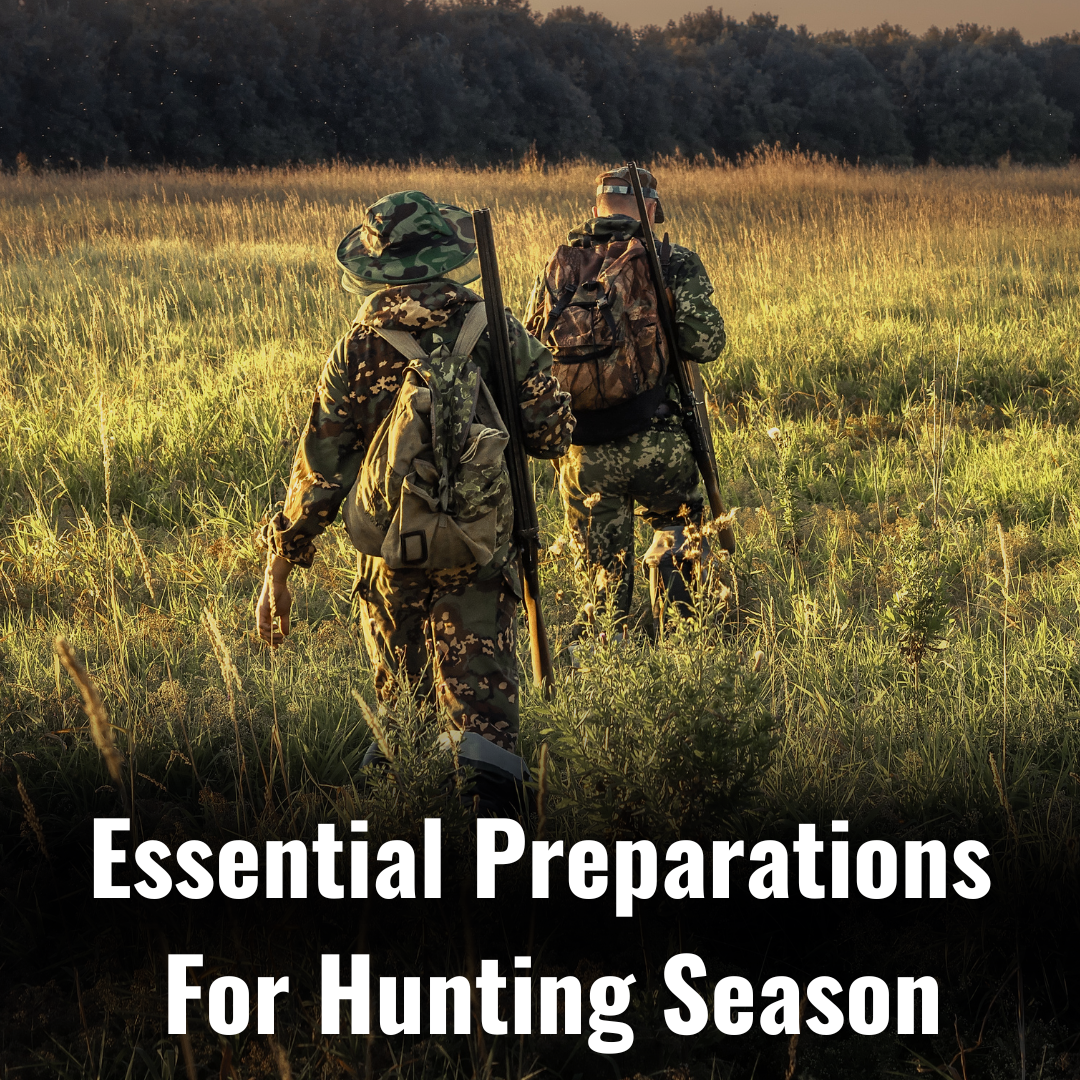
Gear Up: Essential Preparations for Hunting Season
As the days grow shorter and the air turns crisp, the anticipation for hunting season builds. For many outdoor enthusiasts, this time of year represents more than just a hobby; it's a tradition, a way to connect with nature, and an opportunity to gather with friends and family. Preparing for hunting season is essential to ensure a successful and enjoyable experience. Here's a guide to help you get ready.
Understanding the Regulations
Before heading out, familiarize yourself with the local hunting regulations in your State. These rules can vary significantly by region and species.
Season Dates: Know the exact start and end dates for each species you plan to hunt.
Licensing and Permits: Make sure you have the necessary licenses and permits; some animals require special tags.
Bag Limits: Know the daily and seasonal bag limits to avoid fines and ensure sustainable hunting practices.
Weapon Restrictions: Check which weapons are permitted for each game species and any specific restrictions.
Equipment
The right gear can make or break your hunting trip. Here’s a checklist to ensure you’re well-equipped:
Firearms and Ammunition: Ensure your firearms are in good working condition and you have enough ammunition. For bow hunters, check your bow and arrows for any wear and tear. Make sure everything is firing correctly.
Clothing: Dress in layers to stay warm and dry. Consider camouflaged clothing to blend in with your surroundings and avoid bright colors.
Footwear: Sturdy, waterproof boots are a must to keep your feet comfortable and dry.
Safety Gear: Don’t forget your blaze orange vest or hat to stay visible to other hunters.
Backpack: A good backpack to carry essentials like water, snacks, first aid kit, and any game you might harvest.
Scout Your Hunting Area
Familiarity with the terrain can significantly increase your chances of success. Spend time scouting your hunting area before the season begins:
Trail Cameras: Set up trail cameras to monitor wildlife activity and patterns.
Maps and GPS: Study maps and use a GPS to mark potential hunting spots, trails, and water sources.
Practice: Spend time practicing shooting or archery in similar conditions to where you'll be hunting.
Safety
Safety should always be a top priority during hunting season.
Hunter Education: If you haven’t already, complete a hunter education course. It’s often required for first-time hunters and provides valuable safety information.
Communicate: Always let someone know where you’ll be hunting and when you plan to return.
Emergency Plan: Have a plan for emergencies, including a way to contact help and basic survival gear.
Conclusion
Taking the time to prepare thoroughly will enhance your experience and ensure you hunt responsibly. By understanding regulations, gearing up properly, scouting your hunting area, prioritizing safety, and practicing ethical hunting, you’ll be set for a rewarding season. Enjoy the adventure, and happy hunting!
- Choosing a selection results in a full page refresh.
!

